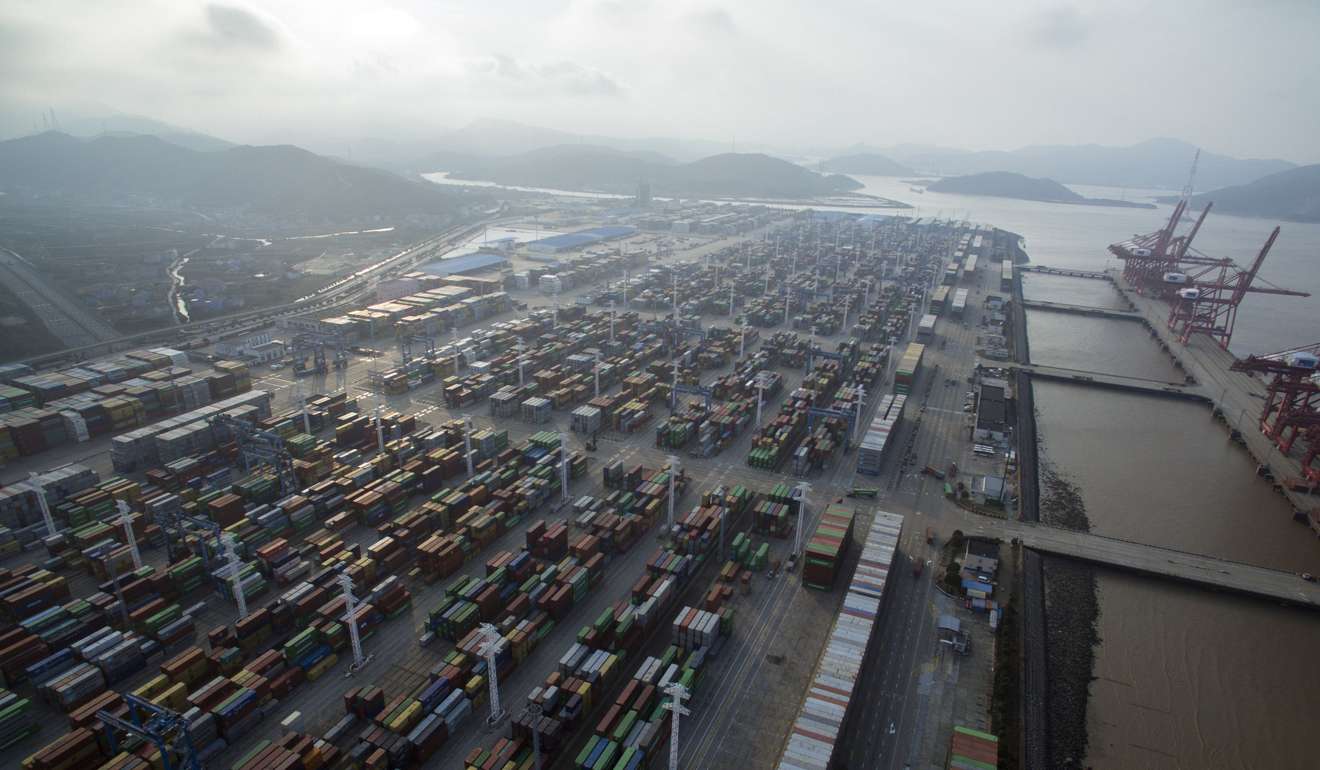
Berlin uneasy about Beijing’s growing clout in eastern, southern Europe
Germany’s ambassador to China expresses concern at Beijing’s growing influence in Europe
Germany is concerned about the growing influence of China in eastern and southern Europe, German ambassador to China Michael Clauss said in an exclusive interview.
“In our view, setting up parallel networks such as China and eastern Europe or China and southern Europe are somewhat inconsistent with a commitment to a coherent and strong EU,” Clauss said this week.
It is rare for Germany to publicly express uneasiness about China’s growing presence in southern and eastern Europe.
China has held five summits with 16 central and eastern European countries so far, and last year Beijing won a deal to build a high-speed railway from Belgrade to Budapest, which would be financed by a China policy bank and built by a state railway construction company.

The 16 countries in the group are Albania, Bosnia-Herzegovina, Bulgaria, Croatia, the Czech Republic, Estonia, Hungary, Latvia, Lithuania, Macedonia, Montenegro, Poland, Romania, Serbia, Slovakia and Slovenia.
All except Albania, Bosnia-Herzegovina, Macedonia, Montenegro and Serbia are also members of the 28-member European Union, in which Germany plays a major role.
Summits of leaders from China and the 16 countries started in 2012, and economic cooperation among them is gathering steam. In 2015, Chinese Premier Li Keqiang invited state leaders from the 16 countries to ride on a high-speed train from Suzhou to Shanghai to experience China’s bullet train technology.
China is looking at further economic cooperation with the 16 countries to promote its “One Belt, One Road” initiative, a key pillar in Beijing’s economic diplomacy that is entering its fourth year. Chinese President Xi Jinping said in 2015 that he expected the “1+16” cooperation would connect with belt and road projects. Beijing has inked memorandums of cooperation on such projects with seven of the 16 countries.
China is also pushing maritime developments working closely with southern European countries including Greece, Italy, Spain, Portugal, Cyprus and Malta, as part of its “21st- century maritime silk road”, one half of the belt and road plan.
Clauss, the German ambassador, said China’s belt and road initiative could link Asia and Europe more closely and potentially help economic growth and political stability, but China should take into account the voices of its peers to increase the attractiveness of the projects to potential partners.
He added that China exerting pressure on smaller countries to adhere by its political agenda has raised concerns.
“In order to succeed, OBOR needs true co-ownership by all participants, everyone should be able to help shape the initiative on the basis of equality,” he said, using the acronym for the belt and road plan.
“Not just with OBOR, smaller countries observe closely how China is wielding its great economic clout and whether it is trying to exert political pressure. They notice how countries like Singapore, Mongolia, South Korea or Norway are being treated.
“The experience of Germany and the EU has been that we achieve positive results with a model based more on rules and trust,” Clauss said.
In a keynote speech at the plenary session of the 53rd Munich Security Conference in Germany, which officially opened on Friday afternoon, Chinese Foreign Minister Wang Yi said the world needed to firmly advance all types of regional cooperation as this had proved effective for promoting global development.
China is seeking a bigger voice on the international stage and Beijing plans to hold a two-day summit on the belt and road initiative in May. Summit organisers plan to invite the heads of the countries involved with the initiative, including European countries. Russia President Vladimir Putin has already agreed to attend.
At the same time, questions remain whether China’s state-led initiative, based on investment and trade, would be effective in winning trust from other countries.
“Once massive business activities are led by a government, other countries would first consider security issues and what possible challenges there are for their society and politics,” Zhu Feng, director of the Institute of International Studies at Nanjing University, said at a forum in Beijing this week.
Clauss said there remained a lack of a level playing field for foreign companies in China.
“Rising protectionism in China is a major concern for foreign companies,” he said. “They worry that ‘Made in China 2025’ – basically a set of targets for domestic companies’ market share in key manufacturing sectors – will push them out of the market.”
In global trade, meanwhile, China and Germany shared many common interests in keeping a global trade system with the World Trade Organisation at its core, a strong EU, support for the UN and a shared G20 agenda, and the two countries needed to work more closely after Donald Trump became US president, the ambassador said.
“In the light of recent developments, which could undermine globalisation, Germany and China both have an interest in the speedy conclusion of an EU-China bilateral investment treaty. Real progress on market access would pave the way for an EU-China free trade agreement,” he said.
“President Xi gave an important speech on free trade in Davos (at the World Economic Forum), now we expect China to walk the talk. Recently we have noticed more readiness by China to find pragmatic solutions for specific complaints from our companies.”
He also said China and Germany could jointly help promote global political stability. He said both cooperate in Afghanistan to increase its disaster relief capabilities and developing a professional training system in Afghanistan’s mining industry, and he saw possible chances to also cooperate in Africa.

